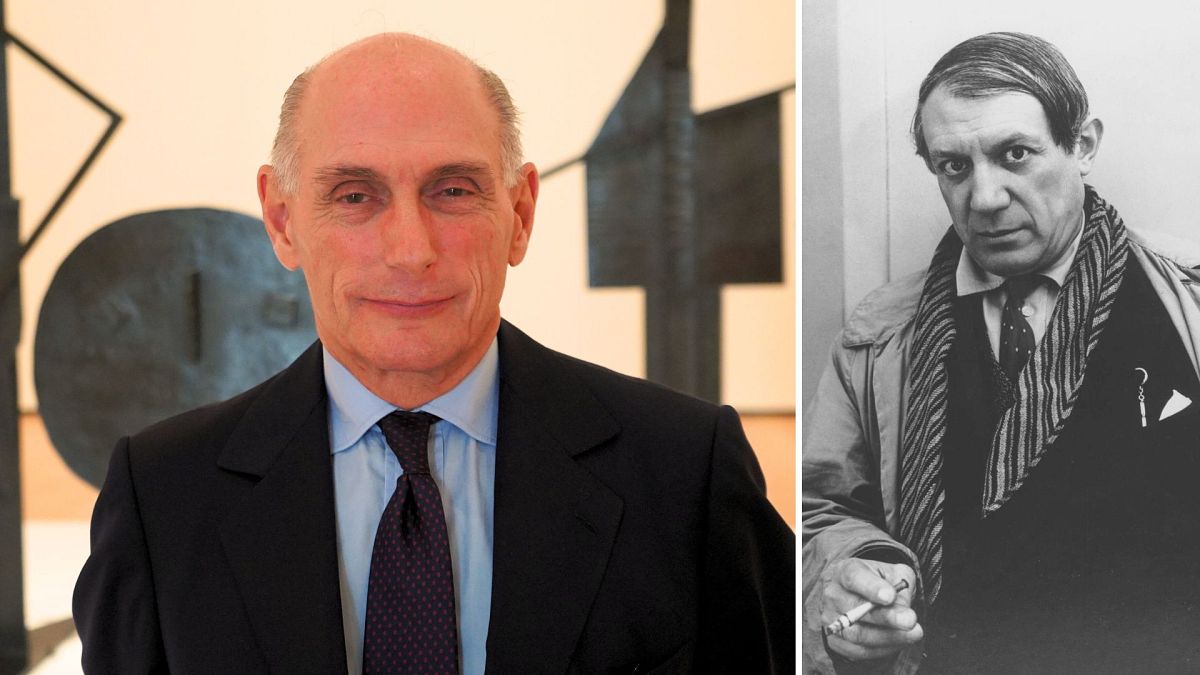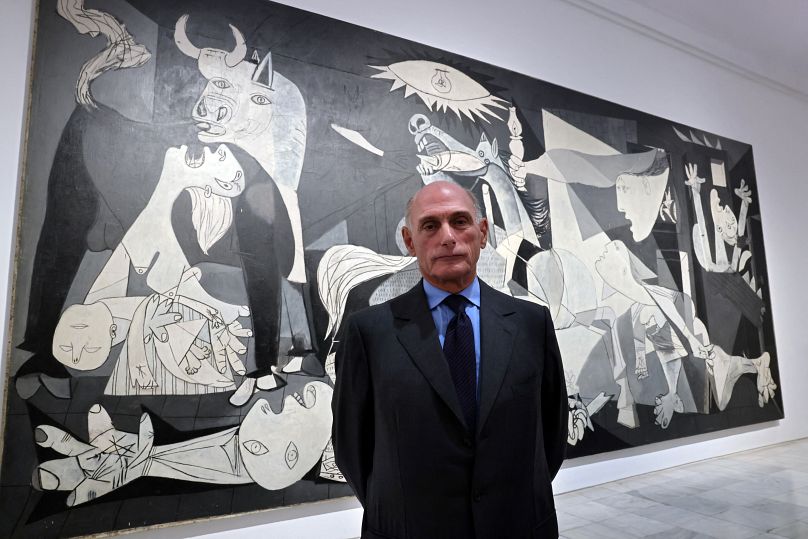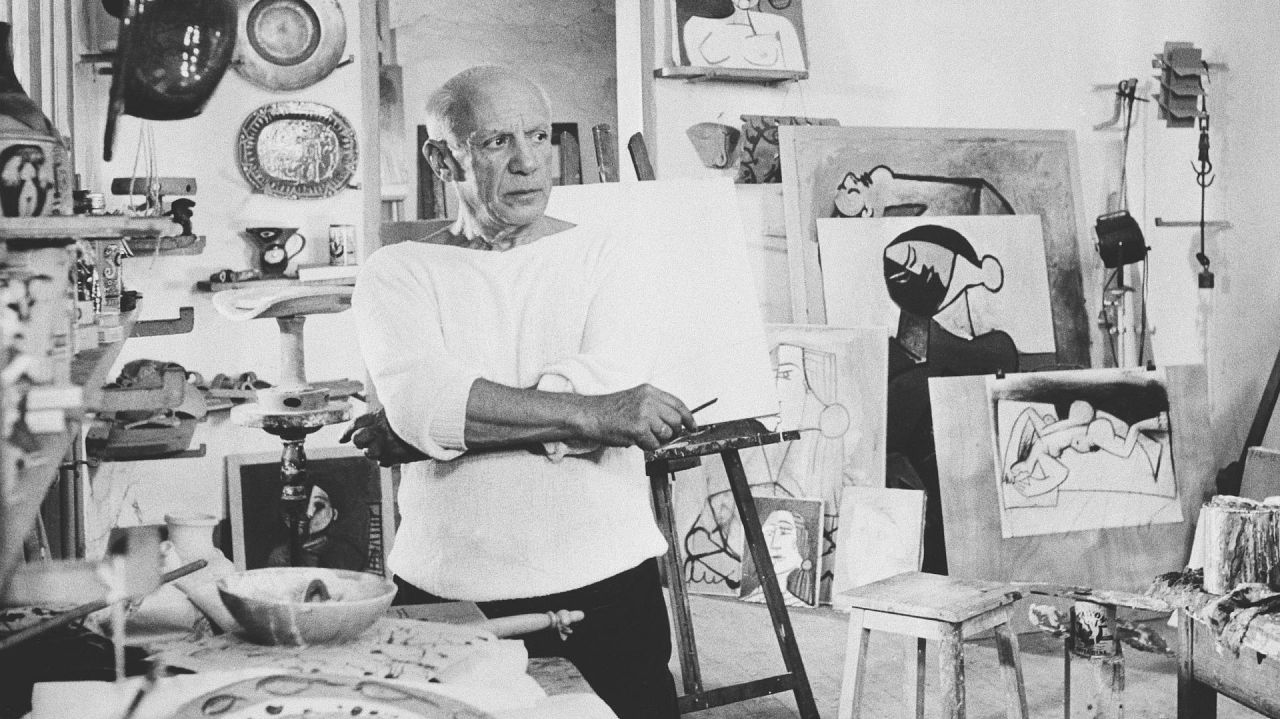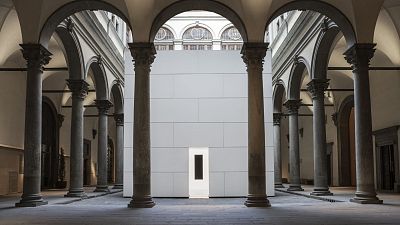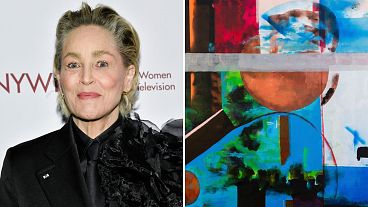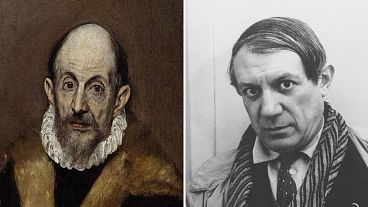"I have a very sweet memory of him": An exclusive interview with Pablo Picasso's grandson
We spoke with Bernard Ruiz-Picasso, the art collector and grandson of Pablo Picasso, to discuss the iconic artist's life and legacy.
Bernard was just 13-years-old when his grandfather, the legendary Spanish painter Pablo Picasso, passed away on 8 April 1973.
50 years on, and after extensive legal battles, Bernard Ruiz-Picasso possesses one of the largest collections of his grandfather's artworks and is also the co-founder of the Museo Picasso Málaga alongside his mother, Christine.
"Of course, being his grandson is a responsibility, but I found myself so lucky that I didn't question it too much," admits Bernard.
We at Euronews Culture recently met him at the opening of the 'Picasso Sculptor: Matter and Body' exhibition at the Guggenheim museum in Bilbao, as part of the 50th anniversary of the death of Pablo Picasso.
During our conversation, he recollected his earliest memories of his grandfather and explained why he thinks it's important to celebrate his legacy in this momentous year.
Euronews Culture: We're here today for the opening of the 'Picasso Sculpture' exhibition at the renowned Guggenheim museum in Bilbao. What are your thoughts and emotions as you stand here today, witnessing your grandfather's artwork displayed within this remarkable space?
Bernard Ruiz-Picasso: Well it is really marvellous to be here as part of the 50th anniversary celebration. It's good to see these sculptures in such a beautiful space and to be able to walk around them and feel them. They seem to be to be very much alive. And it's great to have this institution taking a different version of what we did in Malaga.
Here the sculptures really exist. You can't miss them. The walls are white, there are no paintings. You just have the sculptures which stand in front of us like if you in to a forest and discover some new trees. It's a beautiful landscape.
While Pablo Picasso is primarily recognised as a painter, he also produced a substantial body of sculptural work. What was the significance of this particular art form to him?
For Picasso, but also for many other artists, from the Renaissance for example, sculpture was a way to find solution in painting. It's another way of describing emotions. And Picasso a modern artists, with all his friends in the 20th century, was wishing to explore more about his inner self. Something a little bit deeper, like a better communication.
I'm worked extensively with the work of my grandfather. It's not an obsession at all but it has made me contemplate the statements, ideas and methods Picasso used to depict our emotions and our relationship with sculpture. I think it's very special because it's not like in painting when you need to approach closely to observe details. With sculpture you can appreciate it from different angles, its three-dimensionality. Sculptures are a little bit like humans: we have to engage the imagination in order to maintain a friendship or continue an ongoing dialogue. So sculptures are a beautiful means of showing modernity.
How do you reflect upon and remember your grandfather?
Well, I was a young kid when he passed away. I was 13 years old. But I've been lucky enough to spend quite a long time with him. I have a very, very, very sweet memory of him, spending time with his friends, family and children. He embodied the Spanish grandfather, a very sweet man. Not all grandfathers are sweet, some of them are tough. But in my case, he was very cool.
We used to play together on the beach, swim, and relish those summer moments in the south of France.
And I think the 50th anniversary is very important for me because it allows us to examine the past century with more distance and perspective, with younger generations discussing what the 20th century truly represented. It was a time marked by both beauty and turmoil, filled with war and a lot of drama. Yet, those guys from that era were artists and intellectuals who upheld democracy and a strong belief in life. We owe it to them to continue protecting some of our values, as it gives purpose to our existence.
There is a lot of pain around the globe, but here we can show beauty and art which is a great thing. So for me this celebration is an occasion to reflect on our values and the importance of creativity in each human being. We are all creative individuals which is important to recognise.
When you were a child, were you aware of Pablo's artistic genius, or did you simply see him as your grandfather?
I was mostly embarrassed by being with someone I could not explain. At school, my classmates would ask me, “Who was that guy?". But neither of my parents could explain what an artist was to a young child: it was too abstract.
So I did not know as I was very young. He was always very busy and surrounded by friends. But he would play with me and I had a good feeling around him and my parents. For me these moments were precious. When you're a young kid you're pretty fearful of many things and to have some protection from adults, and my grandfather, was good.
Have there been any challenges of growing up as Pablo Picasso's grandson? Did you ever feel pressure associated with your family connection?
I only felt pressure within myself, but not because of my surroundings. It was a part of growing up, as is normal. Of course, being his grandson is a responsibility, but I found myself so lucky that I didn't question it too much.
Now I do other things, like with my wife with our contemporary art gallery. We are meeting many younger artists who have taught me many things. I had to learn, read a lot of books about art history. That was mainly my problem because I knew I had to study topics like cave people and prehistory. That's a lot of books to read, which when you're young you don't really want to do. I wanted to enjoy life instead!
'Picasso Sculptor: Matter and Body' runs until 14 January 2024 at the Guggenheim Museum Bilbao.
